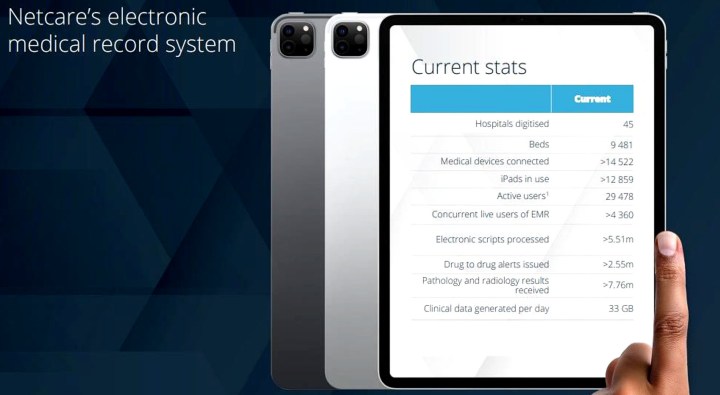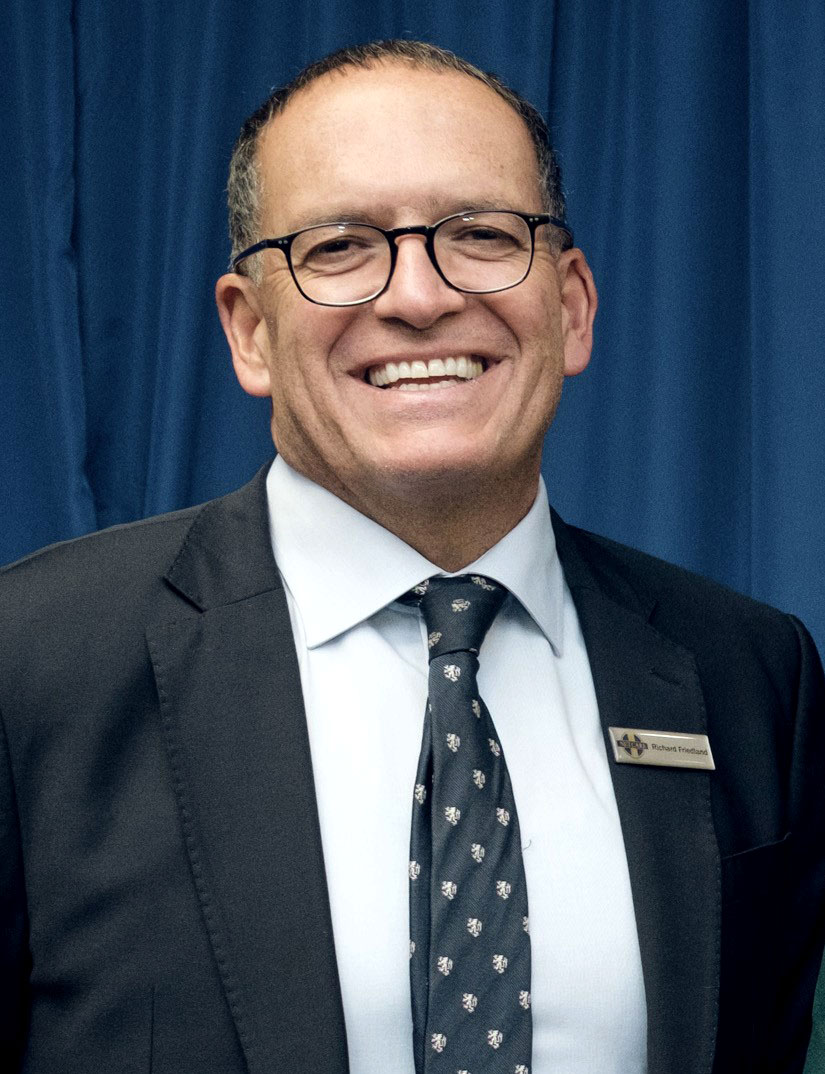GOING OFF-SCRIPT
Netcare digitisation programme makes it the single-largest buyer of iPads in southern hemisphere

Netcare’s ambitious digitisation programme, which kicked off in 2017, has resulted in the hospital network becoming the single-largest buyer of iPads in the southern hemisphere.
Netcare chief executive, Dr Richard Friedland, told the Board of Healthcare Funders (BHF) annual conference this week that his pet project – the digitisation of the hospital group – has had a profound impact on patient safety. “Up to 60% of all prescribing errors in hospital arise from the misinterpretation of a doctor’s written script. The provision of electronic scripting eliminates errors of legibility or misinterpretation,” he said.
With the introduction of the IBM Watson Health Micromedex, all drug dosages, interactions, duplications and allergies are now electronically checked. Friedland says digitisation will help eliminate up to 60% of potential medication errors across more than 1.8 million in-hospital scripts per year in Netcare.
The Netcare e-scripting process was first verified by the South African Pharmacy Council in 2020 and by May 2021 e-scripting was up and running in five Netcare hospitals. By May 2023 more than a million e-scripts had been issued using the system, at 26 hospitals across South Africa.
However, Friedland added that the road to digitisation was not easy.
“The common view at that time (2017) was that almost all IT projects cost three times more than originally budgeted, took twice as long to complete and produced a fraction of the benefits. Given the size and scale, the significant costs involved and the risks to execution, we needed to demonstrate at least some financial benefit in terms of returns or efficiencies,” he says.
The digitisation programme, which was earmarked at R600-million in 2018, was the highest-risk project yet undertaken in Netcare. Reflecting on the process, Friedland said it meant the full integration of all equipment into the electronic medical records, linking all radiology and pathology requests. When this journalist interviewed Friedland in 2o22, he said the group had chosen to partner with Apple because it was a closed ecosystem with a reduced chance of being hacked. “The data will sit in a server with a mirror effect in terms of accessibility. No patient information will be downloaded to individual iPads,” he explained.
“With more than 12,000 iPads in circulation, we were concerned that iPads would go missing or be stolen, but by far the most significant risk was, and remains, that of adoption by our healthcare workers. At first, we thought the greatest problem would be our nurses. Many of our nurses had not used computers regularly, so we started with the very basics, using Candy Crush to familiarise them. During our first pilot at Netcare Milpark, a nursing sister came up to me and said, with pride: ‘Richard, I am 54 years old and this is the first computer or iPad I have ever had!’”
The partners in Netcare’s digitisation journey have been:
- Deutsche Telekom, which provides electronic medical records;
- Apple, which provides the mobile operating platform;
- Capsule, which handles the digital integration of all medical equipment and devices;
- IBM Watson Health Micromedex, which deals with drug interaction, dosage and safety information; and
- SAP, which provides finance, administration, billing, procurement and materials management.
In the company’s results for the year to the end of September 2023, management noted that the internal rate of return on the digitisation project was more than 21%. In other words, the investment in the digitisation programme is expected to yield a return of more than 21% annually.
A cumulative reduction of at least 20%, in the baseline expenditure of more than R60-million a year on printing and stationery, is expected over the next 10 years.

Dr Richard Friedland, chief executive of Netcare. (Photo: Supplied)
Global healthcare digitisation trends
While Netcare is certainly leading the way when it comes to digitisation in the South African hospital sector, other countries are ahead of the curve. Ruijin Hospital in Shanghai, China, has, together with tech partner Huawei, built a digital smart pathology department, which enables the concurrent access of more than 1,000 pathological sections within one second, improving the retrieval speed by 80 times. Huawei helped the Health Bureau of Longgang District, Shenzhen, build a regional medical imaging platform. It supports the interconnection and sharing of medical image data among 12 hospitals, one-click access to image reports, and mutual recognition of cross-hospital examinations. This significantly simplifies service handling for patients.
A little closer to home, Senegal launched a new digital platform for single patient records in March this year. “This project promises significant benefits, such as the centralisation of medical data, the security of personal information, the reduction of waiting times, the facilitation of appointments via SMS, and the improvement of health statistics,” the health ministry said. DM













Comments - Please login in order to comment.